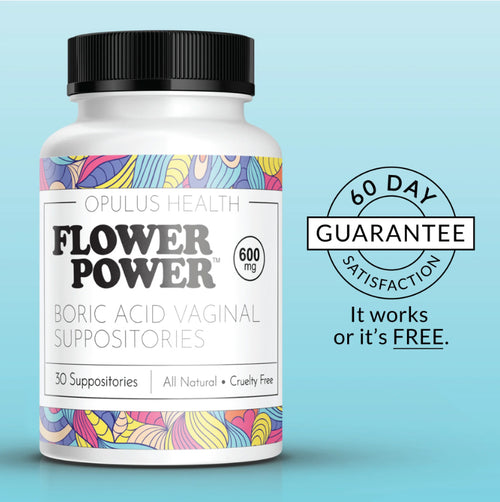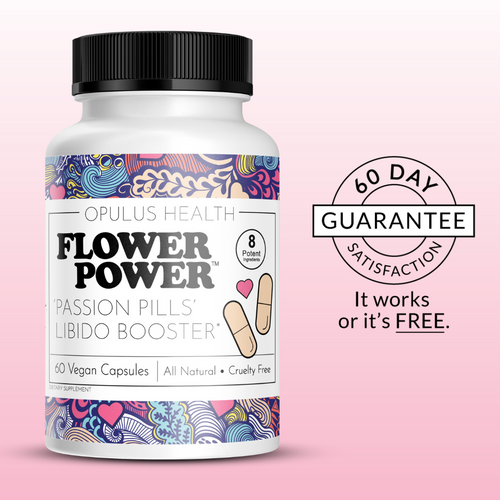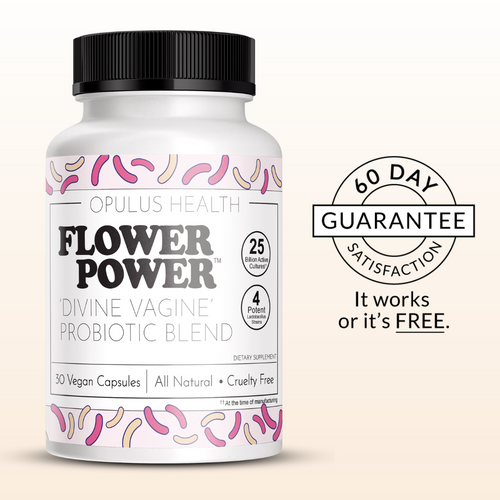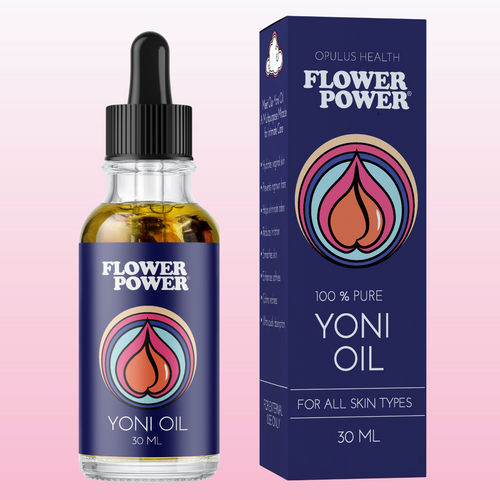Plus what you can do to maintain optimal vaginal health in spite of them

The vaginal health battle is won or lost in your pH.
If your vagina is able to keep your pH acidic 24/7, you’ll have a great time. You’ll almost never get an infection.
But if your vagina is not able to balance your pH (like most women), then you may be wide open to vaginal issues.
So in this article, we’ll talk about the 4 common culprits that throw off the vagina’s pH. And after that, we'll share what you can do to help your vagina rebalance your pH fast.
But first, let’s do a small recap.
Let’s start with what vaginal pH means… where your pH should be… and the pH levels you never want your vagina to get to.
Understanding Vaginal pH
Vaginal pH measures where your microbiome is on a scale of 0 to 14.

On that scale, 0 means most acidic… 7 means neutral… and 14 the most alkaline. To know where your vagina pH usually hangs, you’ll need to use a pH testing kit.
If your microbiome is healthy, then your vagina’s pH will be between 3.8 — 4.5, which is moderately acidic.
The good bacteria (Lactobacilli) thrives in an acidic pH. So once your pH is acidic, you’re sure that your good bacteria is working as it should. And you can safely have sex with no problems at all.
But if your pH is not acidic, you can be sure there is a reason. And the common reason is that something threw off your pH.
A lot of things can throw off your pH. But there are 4 common culprits that are to blame in most cases.
The 4 common culprits that throw off the vagina’s pH
The vagina is always working. It’s always cleaning house and trying to keep the pH balanced.
The vagina has to do this because the pH is always challenged by 4 common culprits. And those four culprits that throw off our pH are:
- Semen
- Ovulation
- Menopause, and
- Birth control
Let’s look at each of them in detail:
1) Semen (male ejaculation)
Once semen gets into the vagina, it completely changes your pH. Why does that happen?
Because semen is alkaline, while your vagina is acidic.
So once the semen gets in there, it increases the pH of the vagina… and makes it more alkaline.
For most women, this is not a problem at all. Shortly after sex, the vagina will clean up the remaining semen and return the pH back to normal. This happens so fast that you don’t notice it.
But in some cases, the vagina doesn’t clean up fast enough.
What ends up happening is that semen remains inside the vagina longer than normal, so the pH remains upset longer than normal. When that happens, it can cause a slight change in vaginal odor.
That is why some women notice an increase in vaginal odor immediately after sex.
But while the odor can be a concern for some women, it’s nothing to worry about. Your vagina will clear things up as soon as it can and the odor will go away on its own.
(If your odor doesn’t go away a few hours after sex… then you can use this product to clean up faster. The product is highly recommended for cleaning vaginal odor)
2) Ovulation
You probably already know what ovulation is. But you may not realize how deeply it affects your vaginal pH.
As you may know, you ovulate when your body is ready to get pregnant. When you ovulate, an egg is released from your ovary and it moves down your fallopian tube. That egg can stay there for 12 to 24 hours, waiting to be fertilized.
But sperm doesn’t like an acidic environment.
So the vagina momentarily changes your pH to make it more sperm-friendly. And your pH will remain off for as long as sperm is in there.
That can last anywhere from a few hours to a day or more. And the sad thing about that is with your pH off, you could get an infection.
So if you’re trying to get pregnant, you need to keep tabs on your pH. To do that, you’d need a pH testing kit.
The next culprit that throws off your vaginal pH is a big one. And it’s menopause…
3) Menopause
You already know that the body changes drastically during menopause. One of those changes directly affect your vaginal pH.
Here’s how menopause affects your pH:
Once you reach menopause, your hormones start to change. Some of your hormones (like estrogen) will drop off sharply. This drop is bad because your vagina needs estrogen.
It plays a huge role in your vaginal health.
Estrogen is that hormone that provides food for your vagina’s good bacteria. And once estrogen starts dropping, the good bacteria in your vagina starts to starve and die off.
When that happens, nothing remains as it should be. Your pH is knocked off-kilter. And with your pH off, you’ll be wide open to vaginal issues.
This is why most postmenopausal women struggle with vaginal issues like dryness… odor… and low libido.
And finally, let’s look at the last culprit that throws off your vaginal pH… birth control.
4) Birth Control
Hormonal birth control can have some serious side effects on your vaginal health.
Here’s why:
Birth control is usually designed to alter your hormones. And because it changes your hormones, it also affects your good bacteria levels. (Like we explained in previous answers.)
This is why most women who use birth control struggle with awful vaginal infections.
-
As you can see, your pH is constantly challenged by one of more of these culprits at any time. That’s why it’s important that you know about them.
Now that we’ve explained how these 4 culprits affect your pH… let’s look at how you can manage them.
How to manage your pH disruptions and enjoy optimal vaginal health
If pH disruptions are causing issues for you, then you should consider your options.
Here are the most common and proven home remedies to consider:
For semen and ovulation:
If you notice that they affect your vaginal health, then you may consider using boric acid suppositories right after sex. Boric acid clears things up for most women, and it works fast.
All you need is to get a medical grade boric acid product and use it as recommended.
If you’re past menopause:
If you’re past menopause, then chances are that your hormones are off. Which is why you’re noticing vaginal issues.
One way to reduce the effects of menopause is to use effective vaginal health routines to keep your vagina young. When you do that, it will help you to reduce, stop and even reverse the effects of vaginal atrophy.
Vaginal atrophy can be awful. Sex becomes painful and feels like a chore. On top of that, dryness will usually set in down there.
To make sex less painful and to increase wetness, most women use estrogen creams or vaginal moisture supplements.
While estrogen creams and vaginal moisture supplements can help… it’s better to visit your healthcare provider for more specialized advice.
If your birth control is causing problems:
If your birth control is causing problems, then the most common solution may be to just give it up. But for more persistent concerns, visit your healthcare provider for more specialized advice.
In general, most women use two products to restore balance in their microbiome. Those products are boric acid suppositories and vaginal-health probiotics.
2 more factors that can affect your pH
Your diet and nutrition
Like you’ve heard, your diet can affect your vaginal health.
For example, high-sugar foods and carbs can support the growth of yeast down there. That leads to yeast infections like candidiasis.
The good news is that you can also eat your way to optimal vaginal health.
Any food rich in probiotics can support your vaginal health. That includes yogurt and other fermented foods. They support the growth of beneficial lactobacilli.
(One way to get all the probiotics you need in minutes is to invest in a good vaginal health probiotic, like Divine Vagine)
It’s also a good idea to eat a balanced diet with plenty of fiber. Fiber will nourish your health and also support your vaginal microbiome.
Stress and pH
The second factor that can affect your pH is stress. Yes, stress.
As you may know, stress releases cortisol in the body. The more you’re stressed, the more cortisol your body will make. And cortisol is a hormone you never want to have in excess in your body.
Excess cortisol is not just bad for your body, it’s also bad for your vaginal health. It affects your immune system… and also disrupts your good bacteria.
Cortisol affects your hormones too. It targets estrogen and progesterone, the two hormones that maintain your vaginal pH.
So if you’re struggling with vaginal issues, it’ll be a good idea to learn more about how stress affects your vaginal health.
It’s important to understand how all these affect your vaginal health. That’ll help you to take proactive steps to maintain your pH balance.
You have to do this if you want to enjoy optimal vaginal health and a great sex life.
Go to regular check-ups with a healthcare provider. Eat a balanced diet, and manage your levels of stress. Add a probiotic supplement to your regimen.
Do all those and more and you’ll be on your way to optimal vaginal health.
Conclusion: The pH Balancing Act
It can be tough to manage the impact of semen, ovulation, birth control and menopause on your microbiome. But it’s doable.
Follow the advice on this post. And when in doubt, reach out to your doctor for more personalized advice.
With the right knowledge and care, you can maintain your vaginal health through all of life’s stages.





